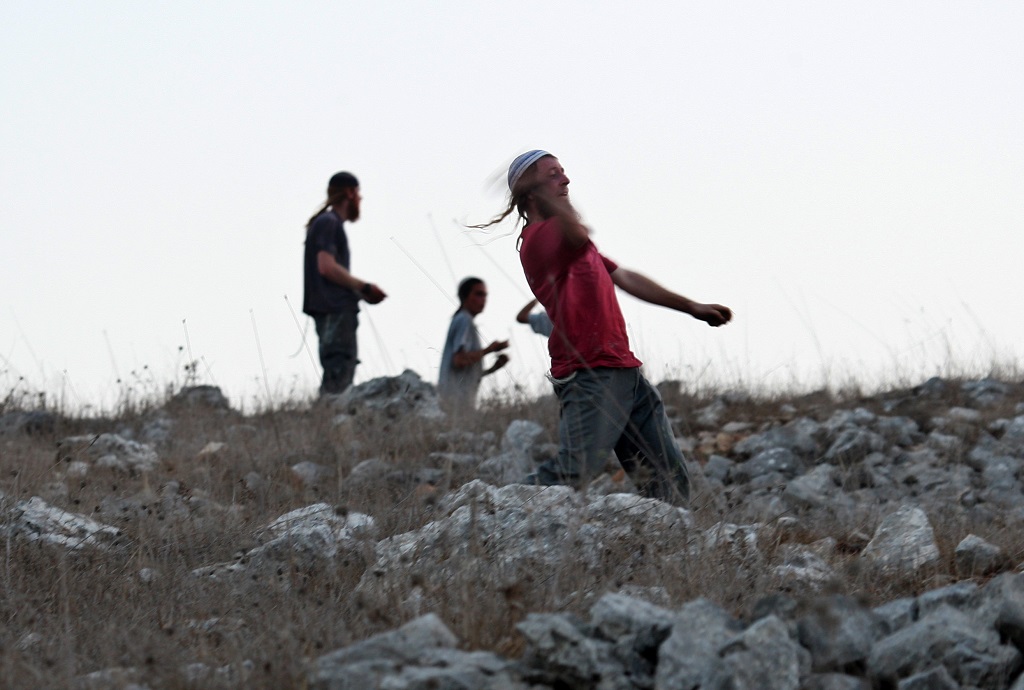Important News
Solana: Peace Should be Based on Observance of 1967 Borders
STRASBOURG, April 6, 2006 (WAFA) -EU's Javier Solana asserted Wednesday that in the EU's contention, peace in the Middle East should be based on observance of the 1967 borders and only any territorial adjustments agreed to by both sides will be acceptable.
In Appearance before the European Parliament in Strasbourg, the EU High Representative for the Common Foreign and Security Policy (CFSP) and Secretary-General of the Council of the European Union said the EU must continue to reject unilateral measures which may jeopardise the two-state solution.
Solana revealed the EU will keep a very close watch on developments in East Jerusalem and in the Jordan Valley, where Israel is engaging in action particularly harmful to the Palestinians, and on the construction of the separating fence(Wall).
He stressed that under international humanitarian law, Israel has a number of duties as an occupying power. "Basically, it must facilitate transport of humanitarian aid to the Palestinian population. Over and above a strict interpretation of that duty, Israel must also facilitate movement in the occupied territories, so as to allow economic sustainability, without compromising the security of Israelis."
The EU High Representative pointed out that it is of the utmost urgency here for both sides to apply the access and movement agreement signed in November 2005. "That agreement made it possible to open the Rafah border post, where the EU is playing and will, if both sides so wish, continue to play a very significant role. However, that agreement includes other points (transit between Gaza and the West Bank, and facilitation of movement within the West Bank) which also need to be carried out.
He added: Another obligation is for Israel to transfer to the Palestinian Authority the revenue from customs duties and taxes which it collects on its behalf. This is Palestinian money, which cannot be withheld.
As for Hamas government, Solana said "its programme, as presented by Prime Minister Ismael Haniyya, is unfortunately unacceptable to the international community. It does not give any clear indication that the Hamas government is prepared to respect the principles established by the European Union: eschewing the use of violence as a means of settling the conflict, recognising the State of Israel and observing the agreements signed between the Palestinians and Israel."
But he added the EU does not want on principle to see the Hamas government fail. "What we want is for that government, besides respecting the Quartet's three principles, also to apply those of the rule of law, a state based on it and democratic transfer of power, and to maintain the pluralistic nature of Palestinian society. If it does so, Hamas can be regarded as a fully-fledged political entity."
"The EU will, however, continue its aid for the Palestinian people, firstly, because this is a moral imperative which the EU cannot shirk and, secondly, because the humanitarian crisis and instability in the occupied territories do no good to anyone, starting with Israel itself", Solana said.
"Another of the EU's key aims is to maintain the Palestinian Authority's institutional fabric, which we have put so much effort and money into building and whose continuity is crucial if the creation of an independent, democratic, viable Palestinian state is one day to become a reality," he added.
As regards the international framework, Solana said the EU's aims are to continue working within the Quartet and to involve the Arab countries. "They can and should do far more politically and economically to try and bring Hamas into the Beirut peace initiative."
He said the results of the elections in the occupied territories and in Israel have created a new situation. "The EU has to tackle it on the basis of two principles, which are contradictory only in appearance: rigour and flexibility."
"Rigour is needed in order to uphold the principles which have informed Europe's position since the 1980 Venice European Council meeting, namely respect for the rights of the Israeli and Palestinian peoples, rights which should be firmly spelt out in a negotiated solution leading to the creation of an independent, sovereign, democratic Palestinian state in peaceful coexistence with Israel," he added.
"Flexibility is needed in order to adapt to developments in reality on the ground and to support solutions bringing progress in the cause of peace," Solana said.
"Hamas cannot change its past, but it can and must change its future," Solana concluded. "If it decides that there is no place in that future for terror, violence or negation of the reality of the State of Israel, the EU will be able to respond appropriately, as it has always done."
E.B. (14:23 P) (11:23 GMT)










